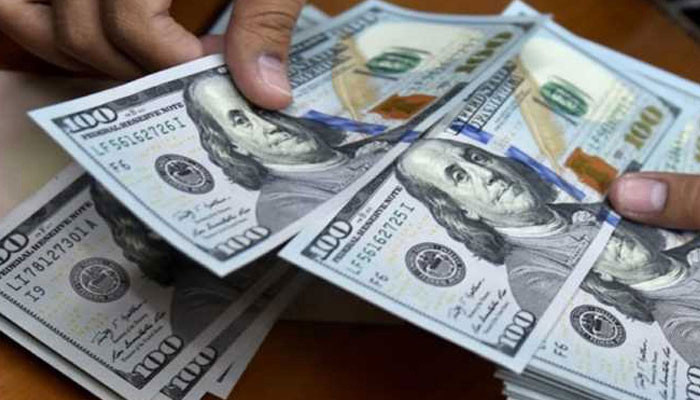
In Pakistan, 80% of the population is living on the income of only 20% of the population. Photo: File
A high-level meeting chaired by Caretaker Prime Minister Anwarul Haq Kakar was held in Islamabad yesterday. It was regarding the prevention of smuggling in the country, in this high-level meeting, the caretaker prime minister was briefed on the situation of smuggling across the country, especially in the North-West border areas and the measures taken to prevent it.
According to the media, the Caretaker Prime Minister has ordered that an inter-agency report be prepared on the government officials involved in smuggling in Balochistan and disciplinary action should be taken against the government officials who are involved or helping in the smuggling business and they should be punished. be given The Prime Minister directed the customs authorities and law enforcement agencies to crack down on smuggling of sugar, petroleum products, urea, agricultural commodities and other commodities.
The meeting was apprised of the anti-trafficking strategy of law enforcement agencies in Balochistan. According to the media, it was told in the meeting that due to the tireless work of the law enforcement agencies, there has been a 40% reduction in smuggling in the country. Ten additional Joint Check Posts have been notified in Balochistan.
The Prime Minister said that he himself will conduct the weekly review meeting to check the effectiveness of the prevention of trafficking. Smuggling of petroleum products leads to loss of revenue and severe pressure on domestic foreign exchange.
While other factors have damaged Pakistan’s economy, smuggling is also an important and major cause. The answer to how and why trafficking occurs is not at all difficult. Simply put, the rate of increase in wealth of a people or mafia smuggling business is extraordinary. Because he does not pay any tax on the goods he smuggles.
The answer to the second question of how trafficking occurs is that anti-trafficking agencies do not perform their duties according to the principles set out in the constitution and law. Whether they are officers or officials of public institutions, they are paid salaries and other benefits from the public exchequer. These salaries and allowances are given so that the purpose for which they are recruited and given responsibility, they perform it with full dedication, courage and according to the law.
Preventing the business of smuggling is the responsibility of the state and government agencies, which are recruited for the same purpose and are paid salaries and benefits from the nation’s taxes. If officers and officials do their duty, smuggling will certainly not stop, but its rate will be negligible. Officers and officials betray their responsibilities and duties because their accountability mechanism is first. It does not exist and if it does, it is very weak.
If the accountability mechanism is foolproof, the government officials and officials will know that if they cheat, they will not be able to escape accountability. However, what the Caretaker Prime Minister has said regarding the prevention of smuggling, if he succeeds in implementing that much, it will also be a credit to him.
The reality of Pakistan’s economy is not hidden even from the caretaker government. A media report has stated that federal government debt is a threat to the economy. The Finance Ministry termed the country’s financial situation as weak and termed the federal government’s loans as a financial risk.
The report released by the Ministry of Finance stated that GDP growth, inflation, interest rate, exchange rate are among the financial risk factors. The report further stated that public debt has reached 78.4 percent of GDP and is a factor in financial risks, while public sector loans and guarantees have reached 9.7 percent of GDP.
According to the report, losses of government institutions are also included in financial risks. Delay in implementation of policy measures is also included in financial risks. Pakistan has not only foreign debts but also domestic debts. These domestic loans have been taken by various governments from various financial institutions, while many government institutions are also debtors of domestic banks and to cover their deficit, the government keeps increasing taxes. Television fees in electricity bills are a link in this chain.
A newspaper report has stated that the financial crisis of Pakistan International Airlines (PIA) has also become serious. In the news, it has been mentioned with reference to the sources that the payments to the ground handling companies of various airports of PIA could not be made. Due to the financial crisis, payments for leased aircraft could not be made. The total loss of PIA has exceeded 112 billion rupees.
The same is the case with Railways and Pakistan Steel Mills. Pakistan Railways has increased the fares, rail fares have been increased by 5%, parcel and luggage rates have also been increased by 5%, these increases will be implemented from September 2. The fares of other transports operating in the country have also increased. This is due to the continuous increase in the prices of petroleum products, the continuous increase in the prices of LPG and other sources of energy.
In the latest report of the Department of Statistics, it is said that the inflation rate has increased to 27.4% in the month of August. Inflation rate up to 21 percent is the official target but inflation has increased far beyond this target. According to the report, villages are the most affected due to inflation, food inflation in rural areas has reached 40.6 percent and in cities this rate is 88.8 percent.
Meanwhile, the prices of sugar are also increasing continuously. According to a press release by the Ministry of Food Security, sugar mills have confirmed reserves of 1.815 million metric tonnes of sugar, which is sufficient against the total requirement of 1.8 million metric tonnes till the start of the next crushing season in November 2023. Current price increases are due to profiteering, smuggling and hoarding.
In January this year, the price of sugar per kilogram was eighty five rupees, which has increased from one hundred and sixty rupees per kilogram to one hundred and ninety rupees per kilogram in different parts of the country. The price of LPG per kg has increased from Rs 201 15 paise to Rs 240 12 paise. From this situation, it can be well estimated that the spread of inflation in the entire country is to what extent.
The continuous political instability in Pakistan during the last five to six years has caused the biggest damage to the economy. Lack of consistency in state policies, misalignment of foreign policy, intense conflict of interests at the internal level and institutional conflict are the main reasons for the destruction of the economy.
The major stakeholders of the state are not able to handle their interests according to the changing global situation. Instead, they are at odds with each other and the situation has reached such an extent that the major stakeholders are divided into two distinct ideological and interest groups, with neither group willing to back down from their own interests. Is. This division is the main cause of decay of politics and state structure.
The state system is not able to bear its own weight. The class living a luxurious life on the basis of state privileges is not ready to compromise on their privileges even in these circumstances. On the other hand, the financial condition of the people has become very thin. In Pakistan, 80% of the population is living on the income of only 20% of the population. Now, it is not difficult to estimate how much tax this 20% section can give to the state.
(function(d, s, id){
var js, fjs = d.getElementsByTagName(s)[0];
if (d.getElementById(id)) {return;}
js = d.createElement(s); js.id = id;
js.src = “//connect.facebook.net/en_US/sdk.js#xfbml=1&version=v2.3&appId=770767426360150”;
fjs.parentNode.insertBefore(js, fjs);
}(document, ‘script’, ‘facebook-jssdk’));
(function(d, s, id) {
var js, fjs = d.getElementsByTagName(s)[0];
if (d.getElementById(id)) return;
js = d.createElement(s); js.id = id;
js.src = “//connect.facebook.net/en_GB/sdk.js#xfbml=1&version=v2.7”;
fjs.parentNode.insertBefore(js, fjs);
}(document, ‘script’, ‘facebook-jssdk’));



